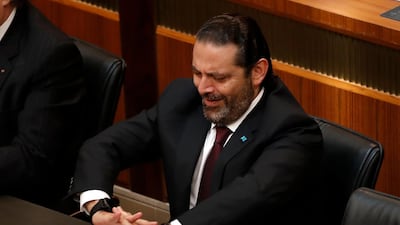On Friday, the Lebanese parliament finally passed the 2019 budget nearly a month-and-a-half after the cabinet first submitted the draft. The measures contained within aim to tackle Lebanon's crushing debt – this small but strategically important nation is the third most indebted in the world – by slashing public spending. This is a condition that the country must fulfil in order to unlock $11 billion of funding pledged by international donors at the Cedre conference – a development initiative for Lebanon, held in Paris last year.
Anywhere else in the world, passing the annual budget nine months late would be an embarrassment, but in Lebanon, this can be broadly considered a success. All parties involved have had to overcome a series of challenges, in order to see the document through to this stage. The country lacked a cabinet for eight months, until January this year, when one was finally formed, and its institutions have been plagued by corruption and mismanagement for decades.
The budget also includes an overhaul of the nation's crumbling electricity system. This is a vital move, as, according to the IMF, the cost of subsidising the national electricity provider Electricite du Liban amounts to 40 per cent of Lebanon's entire debt. Other major drains on the nation's economy are keeping up repayments on its debts, and public-sector pay. The latter has prompted controversial measures such as slashing end-of-service indemnities of members of the military.
However, such cost cutting in the public sector will not be effective unless rules against cronyism are strengthened and rigidly enforced. With thousands of redundant jobs created to indulge patronage networks, Lebanon's institutions are not only bloated and inefficient, they are a colossal and unnecessary drain on public finances. While setting economic goals for this year is a genuine step in the right direction, those objectives must be accompanied by effective anti-corruption measures and long-term economic planning. For now, though, Lebanon is showing to the world that it is willing to make the sacrifices necessary to build a brighter tomorrow for its citizens.

